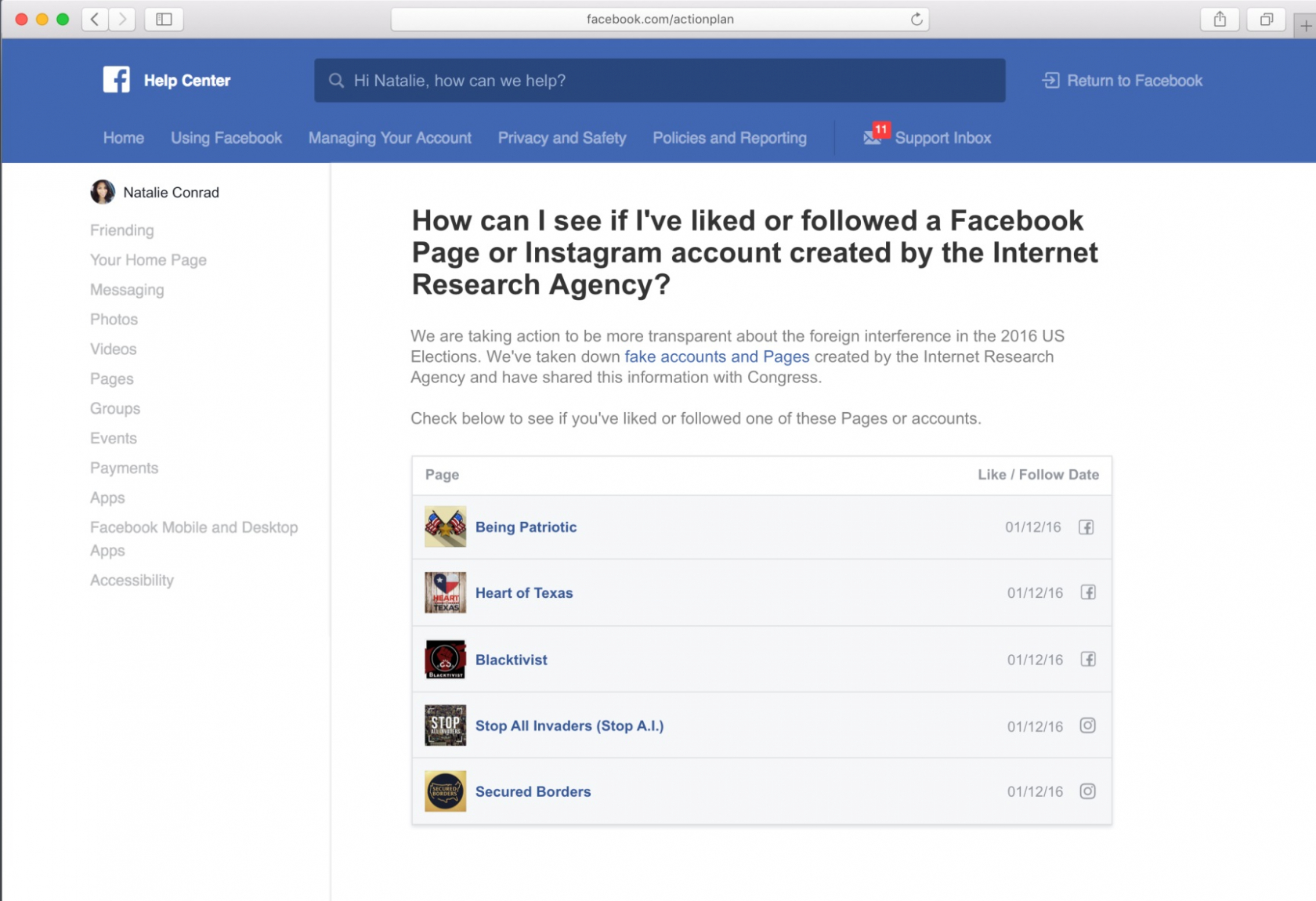It's thought that around 146 million people may have seen Russian propaganda on social media platforms before and after the 2016 US election. For those worried they might have engaged with accounts created by the Internet Research Agency, Facebook is creating a tool showing users what Facebook Pages or Instagram accounts they Liked or followed that are associated with the notorious troll farm.
In addition to creating the bogus accounts, which were designed to spread misinformation and influence US voters, Facebook said the Kremlin-linked Internet Research Agency spent $100,000 on over 3000 ads displayed around the time of the election.
The social network's portal will show users which IRA-created "Facebook Pages or Instagram accounts they may have Liked or followed between January 2015 and August 2017." It's set to arrive in the Facebook Help Center by the end of the year.

"It is important that people understand how foreign actors tried to sow division and mistrust using Facebook before and after the 2016 US election. That's why as we have discovered information, we have continually come forward to share it publicly and have provided it to congressional investigators. And it's also why we're building the tool we are announcing today," explained the company.
While Facebook is introducing the tool to try and make the Russian activity more transparent, the platform is facing criticism over the portal's technical limitations. The tool can't inform people if they were exposed to Internet Research Agency content from sources they didn't follow, which can happen if their friends Like something and it subsequently appears in their newsfeeds.
Additionally, the tool puts the onus on people to visit the portal, and Facebook is assuming everyone will discover its existence. It also requires people find out themselves if they followed/Liked any of these accounts, rather than Facebook notifying them.
"It's a much more challenging issue to identify and notify reliably people who may have been exposed to this content on an individual basis," Colin Stretch, the company's general counsel, told the House Intelligence Committee earlier this month.
